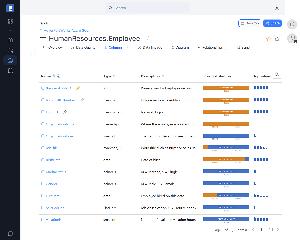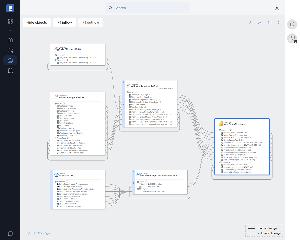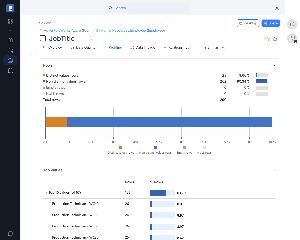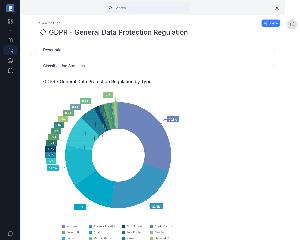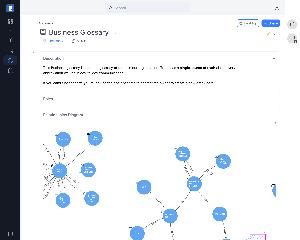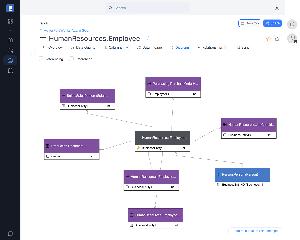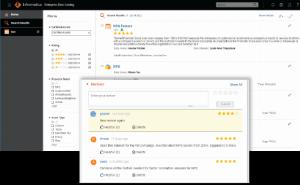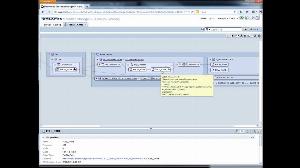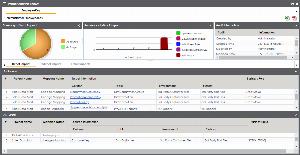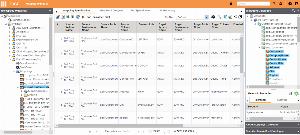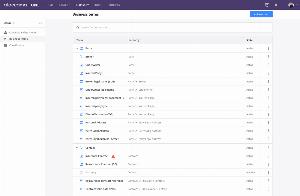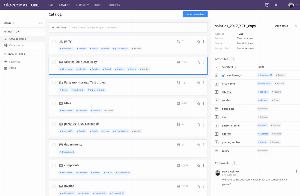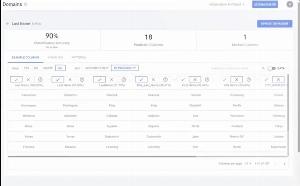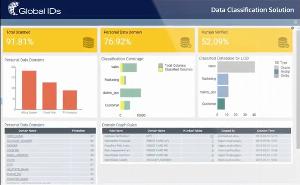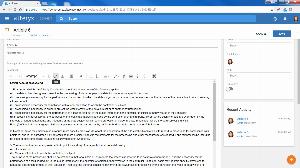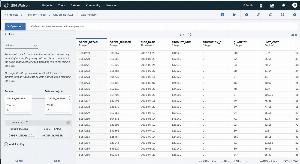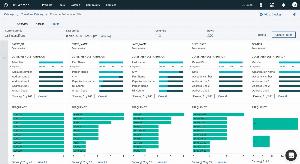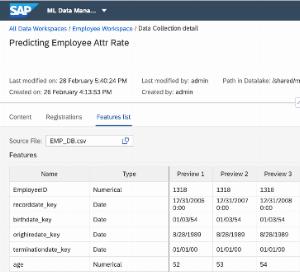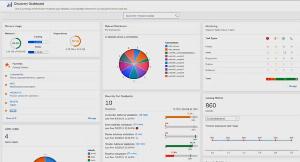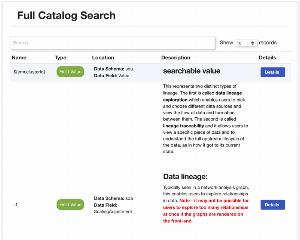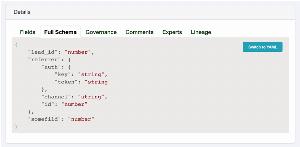Metadata Management tools for Amazon Dynamo DB
List of metadata management tools
Metadata management tool is a solution that supplements the data stored by the enterprise environment with useful information. Proper metadata management is a crucial factor to make information searchable, easy to locate and understand. Such tools add meaningful context to raw data, making it convenient to discover even by non-IT members of an organization.
Dataedo
Dataedo centralizes metadata management by organizing, documenting, and categorizing data assets across multiple sources. Key features include Auto AI Documentation, Business Glossary, Data Classification, Data Lineage, and Data Profiling.
| Business Glossary: |
|
|---|---|
| Change history: |
|
| Data Classification: |
|
| Data Lineage: |
|
| Data Profiling: |
|
| On premises/cloud: | On premises |
| Rating of assets: |
|
| Reference data: |
|
| Support for workflow: |
|
Informatica Metadata Management
Informatica’s metadata management approach is designed to help enterprises fully harness the value of all their data with active metadata. It scans the metadata from all of the enterprise’s data systems including databases and filesystems, integration tools and processes, and analytics and data science tools. It discovers, classifies, and documents key data elements and provides detailed metadata and lineage to bridge technical and business context for data governance.
| Business Glossary: |
|
|---|---|
| Change history: |
|
| Data Classification: |
|
| Data Lineage: |
|
| Data Profiling: |
|
| On premises/cloud: | Cloud |
| Rating of assets: |
|
| Reference data: |
|
| Support for workflow: |
|
erwin Data Catalog
erwin Data Catalog (erwin DC) is metadata management software that helps organizations learn what data they have and where it’s located, including data at rest and in motion. It tells you the data and metadata available for a certain topic so those particular sources and assets can be found quickly for analysis and decision-making.
| Business Glossary: |
|
|---|---|
| Change history: |
|
| Data Classification: |
|
| Data Lineage: |
|
| Data Profiling: |
|
| On premises/cloud: | On premises |
| Rating of assets: |
|
| Reference data: |
|
| Support for workflow: |
|
Ataccama Metadata Management & Data Catalog
Ataccama Metadata Management & Data Catalog is an AI-powered metadata management module. It’s a central storage for all of your metadata—imported from other sources, crowdsourced, or automatically captured in continuous data discovery processes.
| Business Glossary: |
|
|---|---|
| Change history: |
|
| Data Classification: |
|
| Data Lineage: |
|
| Data Profiling: |
|
| On premises/cloud: | On premises |
| Rating of assets: |
|
| Reference data: |
|
| Support for workflow: |
|
Global IDs
The Global IDs Enterprise Data Automation (EDA) platform builds metadata using its discovery, profiling, classification, lineage, and catalog functions, overcoming barriers between silos and creating a unified map of the entire enterprise data landscape: the location of data, its meaning and dependencies, and its flow patterns through the ecosystem.
| Business Glossary: |
|
|---|---|
| Change history: |
|
| Data Classification: |
|
| Data Lineage: |
|
| Data Profiling: |
|
| On premises/cloud: | On premises |
| Rating of assets: |
|
| Reference data: |
|
| Support for workflow: |
|
Alteryx Connect
Alteryx provides metadata management that natively extracts and refreshes field names, schemas, and more to speed integration and flex with change. It automatically loads field names, types, objects, schemas, and relationships from common sources to speed analytics and cataloging.
| Business Glossary: |
|
|---|---|
| Change history: |
|
| Data Classification: |
|
| Data Lineage: |
|
| Data Profiling: |
|
| On premises/cloud: | Cloud |
| Rating of assets: |
|
| Reference data: |
|
| Support for workflow: |
|
IBM Watson Knowledge Catalog
IBM Watson® Knowledge Catalog is an open and intelligent data catalog for managing enterprise data and AI model governance, quality and collaboration. It provides unique capabilities that include automated data discovery and metadata generation, ML-extracted business glossary from most common regulatory terms, and many more.
| Business Glossary: |
|
|---|---|
| Change history: |
|
| Data Classification: |
|
| Data Lineage: |
|
| Data Profiling: |
|
| On premises/cloud: | Cloud |
| Rating of assets: |
|
| Reference data: |
|
| Support for workflow: |
|
SAP Data Intelligence
SAP Data Intelligence provides metadata management, data catalog and data governance functionality. The tool uses metadata crawlers to explore, classify, and label data assets across your connected landscape. It also enables you to review transformation history and metadata to quickly understand how, where, and why data has been altered.
| Business Glossary: |
|
|---|---|
| Change history: |
|
| Data Classification: |
|
| Data Lineage: |
|
| Data Profiling: |
|
| On premises/cloud: | Cloud |
| Rating of assets: |
|
| Reference data: |
|
| Support for workflow: |
|
Tree Schema
The Tree Schema data catalog provides all of the essential metadata management capabilities including rich-text documentation, data lineage, assigning data stewards and technical owners to your data assets, tagging your assets and much more. You can point Tree Schema to your database and fully populate your catalog in under 5 minutes.
| Business Glossary: |
|
|---|---|
| Change history: |
|
| Data Classification: |
|
| Data Lineage: |
|
| Data Profiling: |
|
| On premises/cloud: | Cloud |
| Rating of assets: | - |
| Reference data: |
|
| Support for workflow: |
|
Alation Data Catalog
Alation increases the value of your metadata with machine learning, automation, and human knowledge. Hundreds of organizations use Alation to power metadata solutions, such as analytics, data governance, privacy, risk & compliance, and cloud migration.
| Business Glossary: |
|
|---|---|
| Change history: |
|
| Data Classification: |
|
| Data Lineage: |
|
| Data Profiling: |
|
| On premises/cloud: | Cloud |
| Rating of assets: |
|
| Reference data: |
|
| Support for workflow: |
|
Metadata management tools are usually multifunctional programs that provide a wide spectrum of usability. They include functionalities such as:
• Data catalog,
• compatibility with multiple connectors, making the tool a single source of truth about the data from different repositories,
• Business glossary,
• Data lineage,
• Data profiling,
• Impact analysis,
• Metadata ingestion and translation.
From the organization's point of view, the ability to export the created documentation into user-friendly formats is also important. What is more, some of the tools offer a community module, which facilitates the information flow.
Metadata management solutions oversee data across its entire lifecycle. This typically covers four primary areas: data analysis, data value, data governance, risk and compliance.
Proper metadata management implementation allows for standardized metadata definitions, management, and maintenance of information across the organization for greater business efficiency.
Today, as data becomes increasingly important to the growth of company performance, choosing the right way to manage it is equally essential.
To help you find the right tool for your organization, we have put together this list of best metadata management solutions.
 SQL Server
SQL Server
 Oracle
Oracle
 MySQL
MySQL
 PostgreSQL
PostgreSQL
 Amazon Redshift
Amazon Redshift
 Azure SQL Database
Azure SQL Database
 DBT
DBT
 Google Big Query
Google Big Query
 IBM DB2
IBM DB2
 MariaDB
MariaDB
 SAP HANA
SAP HANA
 Snowflake
Snowflake
 SQLite
SQLite
 Teradata
Teradata
 Vertica
Vertica
